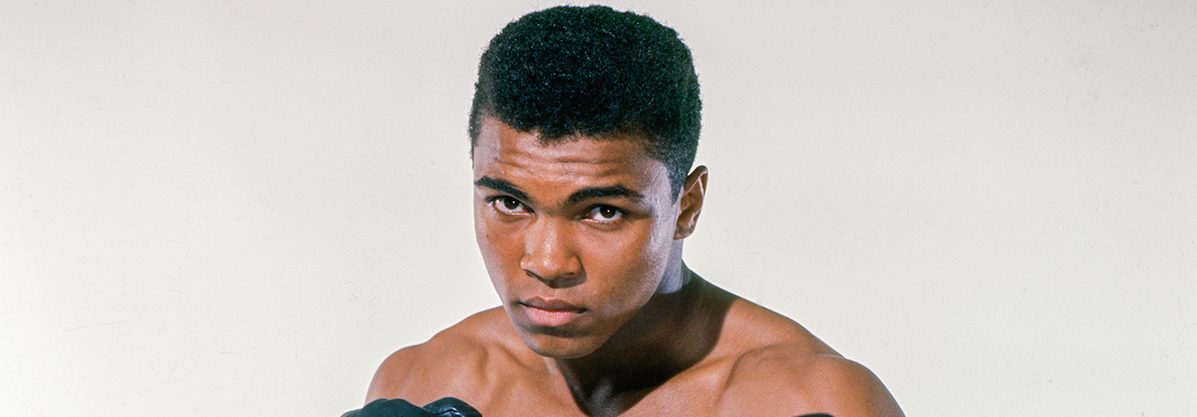With the NFL protests suddenly a political football—and President Trump, a willing quarterback—the sports world has been thrust headlong into the national conversation on social injustice, police brutality, and race, more so than maybe it ever has.
And it’s not just a pro football issue: youth sports, soccer, baseball, and basketball have all found their way into the fold.
One sport that has largely steered clear of the protests—but has a shining legacy in them—is boxing. As The New Yorker editor David Remnick explains, that legacy lives on with the late Muhammad Ali, who took a Muslim name, actively protested the Vietnam War and refused to serve, and lobbied for civil rights in an era much less friendly to protest—not to mention from an African-American man.
For his protesting of the war, he was thrown in jail and released on bail, stripped of his titles, and suspended. Even Jackie Robinson, who broke baseball’s color barrier, had harsh words for Ali.
So Remnick asks, “What could Donald Trump have thought of Ali’s insistence on his rights, and on the rights of African-Americans, fifty years ago?”
The Charge will help you move better, think clearer and stay in the game longer. Subscribe to our wellness newsletter today.


















